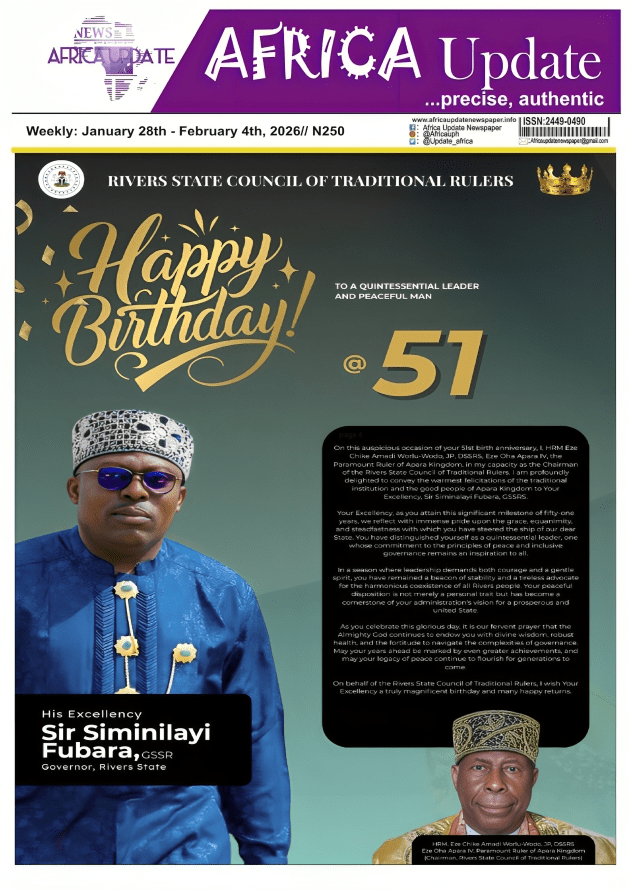
Port Harcourt, Rivers State — The precarious situation faced by inhabitants of Rivers State’s coastal communities has been thrust into the governmental discourse, following an official declaration of grave concern by Governor Siminalayi Fubara regarding the devastating impact of perennial flooding and environmental erosion.
The Governor made his remarks in Port Harcourt at the launch of the pivotal new book, ‘Coastal Zone Flooding And Erosion in Developing Communities, Principles, Cases and Strategies,’ authored by Emeritus Professor Wiston Bell-Gam. Lamenting the deleterious consequences of flooding on both human life and the natural environment, Governor Fubara underscored that the effects frequently culminate in the loss of property, degradation of vital ecosystems, and, tragically, human fatalities.
Represented at the event by the Secretary to the State Government, Honourable Benibo Anabraba, Governor Fubara pledged that his administration would vigorously continue to pursue and encourage robust adaptation strategies to combat the imminent threat.
“The Rivers State Government will continue to undertake and encourage adaptation strategies, such as the construction of seawalls and breakers, canals and channels, restoring coastal ecology and ecosystem for coastal resilience and where necessary, the relocation of communities on the coastline,” the SSG stated on the Governor’s behalf.
This commitment is already materialising, with the administration having recently approved the construction of shoreline protection along the coastlines of more than five communities in the Ogba/Egbema/Ndoni and Opobo/Nkoro Local Government Areas, signalling a concerted intervention effort.
Beyond infrastructural responses, Governor Fubara issued a resounding call for broader mitigation strategies, urging stakeholders to act and advocate for the reduction in the emission of Green House Gases the primary cause of climate change and rising sea levels. He championed the need to promote the use of clean energy in opposition to fossil fuels.
The Governor also directed a sharp warning toward the citizenry, stressing the need to desist from activities that exacerbate the crisis. “We also need to encourage our people to stop developing buildings on and along natural water courses, indiscriminate sea mining and dredging activities on our coastline without consideration for mangroves and swamps,” he stressed.
The gravity of the environmental crisis was further accentuated by other prominent voices at the event. King Alfred Ditte-Spiff, former Military Governor of the old Rivers State and Amayanabo of Twon Brass, who served as the Royal Father, attested to the book’s timeliness, stating that it enables stakeholders to manage the pervasive challenges of global warming.
“Global warming is real. If it’s not addressed globally, a time will come when coastal areas will find themselves under water. The coastline of Nigeria is shocking with many mangroves gone,” the King observed.
Professor Temi Ologunorisa, the book’s Reviewer and Vice Chancellor of Olusegun Agagu University of Science and Technology, described the 14-chapter volume as “timeous” for its ability to fill literary gaps between desire and available knowledge. He commended the work, noting that a major beauty that sets the book apart is its detailed consideration of flood and erosion control case studies from around the world, all predicated on detailed field investigation.







